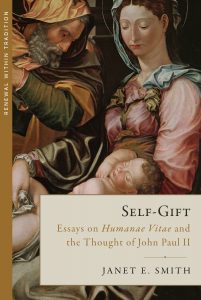By Jeffrey L. Morrow

July 25, 2018 marks the fiftieth anniversary of one of the most controversial documents to come from the Catholic Church: Humanae Vitae. Although not only concerned with the issue of contraception, the reaffirmation of the Church’s condemnation of contraception became the most controversial portion of that papal encyclical from Blessed Pope Paul VI, who is scheduled to be canonized a saint by Pope Francis this upcoming October 14. His cautions (no. 17), ignored by so many at the time, sadly have proven prophetic. From his concern about a rapid increase in “marital infidelity,” and the “lowering of moral standards,” to his prescient warning “that a man who grows accustomed to the use of contraceptive methods may forget the reverence due to a woman, and, disregarding her physical and emotional equilibrium, reduce her to being a mere instrument for the satisfaction of his own desires, no longer considering her as his partner whom he should surround with care and affection.”
We see the fruition of these results daily on the news and in the lives of our family and friends. His final cautions are chilling, as we see aspects of them come to reality in parts of the world, and threaten our own little corner as well:
“Who will blame a government which in its attempt to resolve the problems affecting an entire country resorts to the same measures as are regarded as lawful by married people in the solution of a particular family difficulty? Who will prevent public authorities from favoring those contraceptive methods which they consider more effective? Should they regard this as necessary, they may even impose their use on everyone.”
Humanae Vitae remains as relevant today as it was in 1968.
In light of Blessed Pope Paul VI’s prophetic witness, there are two events I would like to note.
The first is the publication of Dr. Janet E. Smith’s, Self-Gift: Essays on Humanae Vitae and the Thought of John Paul II, published by Emmaus Academic. Smith’s volume is a masterful treatment of issues related to Humanae Vitae and St. John Paul II’s related teachings. It covers a variety of aspects of Paul VI’s encyclical, including a translation of the document, as well as the rich teachings of St. John Paul II on the family. This collection of essays will benefit any interested laity, clergy, or religious.
The second event is the upcoming conference to be held at Seton Hall University, sponsored by Immaculate Conception Seminary School of Theology, where I teach, on October 27, 2018. The conference is entitled, “Humanae Vitae: 50 Years of Prophetic Witness,” and will host a number of important speakers on topics ranging from Humanae Vitae, St. John Paul II’s Theology of the Body, and Pope Francis’ Amoris Laetitia. Speakers include St. Paul Center of Biblical Theology Distinguished Fellow and Ratzinger Institute for Biblical Theology Faculty Fellow, Dr. Michael Waldstein. If you are in driving distance, this is an event you will not want to miss.
 Jeffrey L. Morrow is a Senior Fellow at the St. Paul Center, a Senior Fellow of the Principium Institute, a Fellow of the Institute for Biblical Research, and an Associate Professor and Chair of Undergraduate Theology at Seton Hall University’s Immaculate Conception Seminary School of Theology. Discover the latest scholarship on Pope Paul VI’s encyclical at Seton Hall University’s conference “Humanae Vitae: 50 Years of Prophetic Witness.”
Jeffrey L. Morrow is a Senior Fellow at the St. Paul Center, a Senior Fellow of the Principium Institute, a Fellow of the Institute for Biblical Research, and an Associate Professor and Chair of Undergraduate Theology at Seton Hall University’s Immaculate Conception Seminary School of Theology. Discover the latest scholarship on Pope Paul VI’s encyclical at Seton Hall University’s conference “Humanae Vitae: 50 Years of Prophetic Witness.”

Interested in learning more about the issues addressed in Humanae Vitae? Read Janet E. Smith’s Self-Gift: Essays on Humanae Vitae and the Thought of John Paul II for an in-depth treatment of the encyclical and the conversation surrounding it.